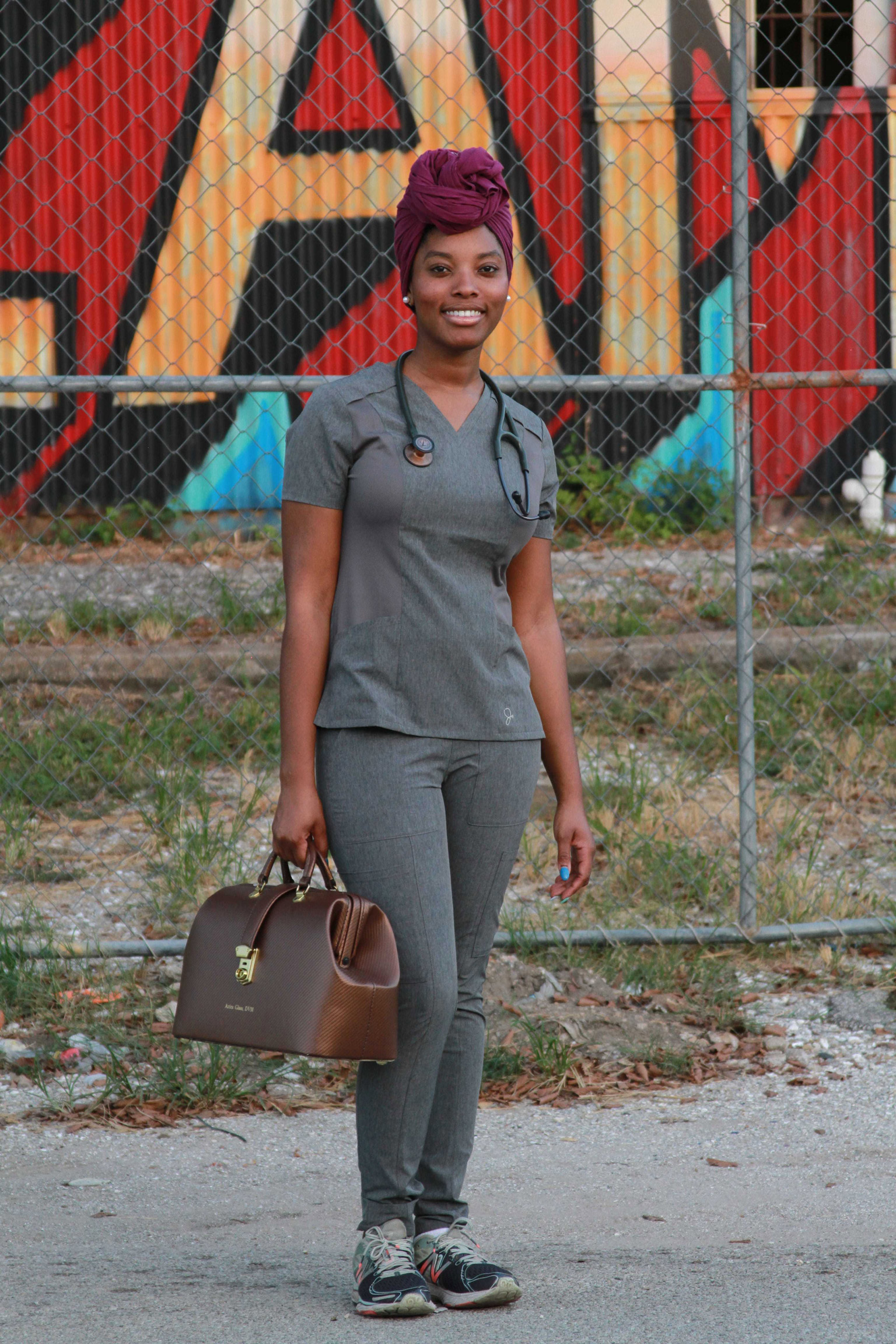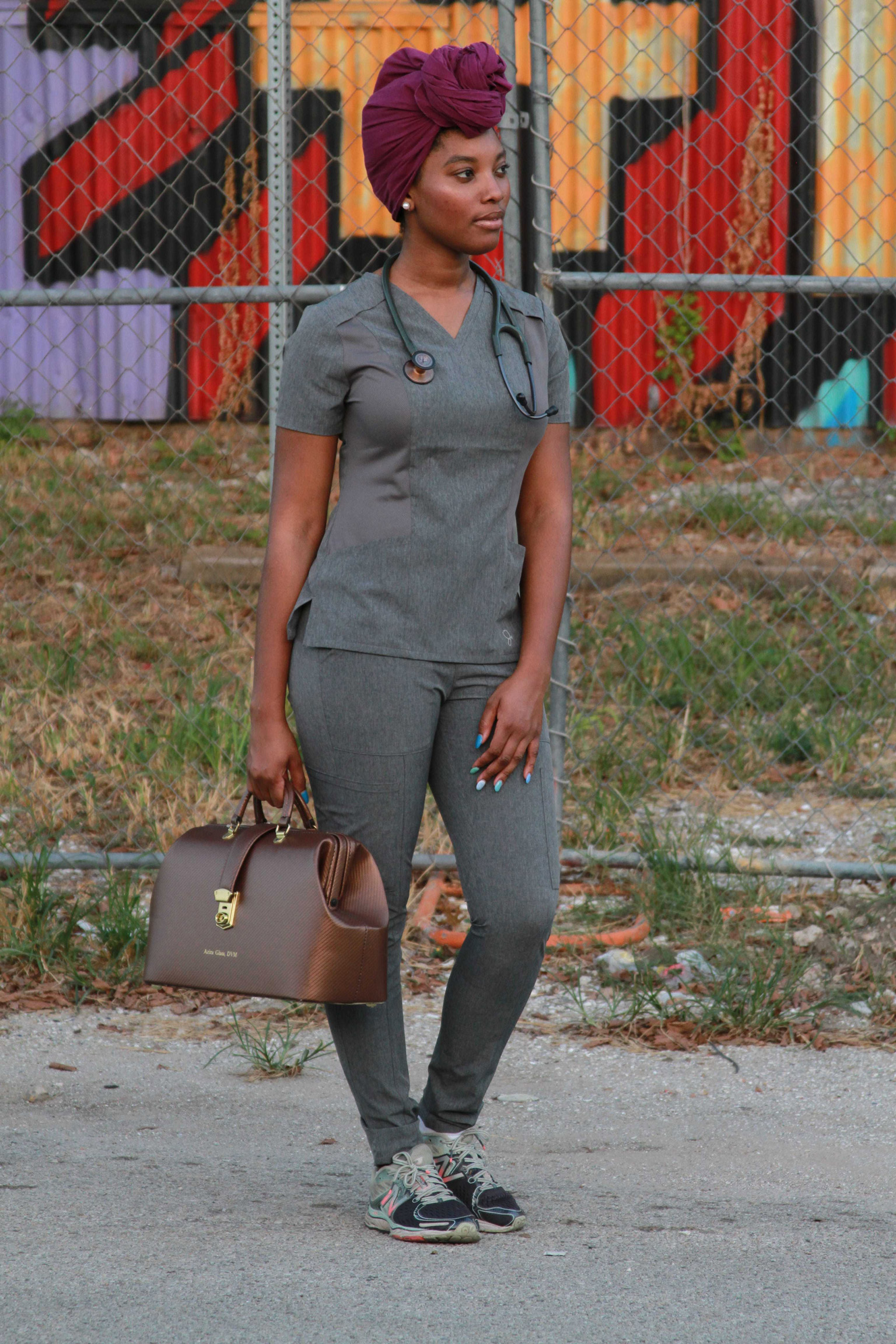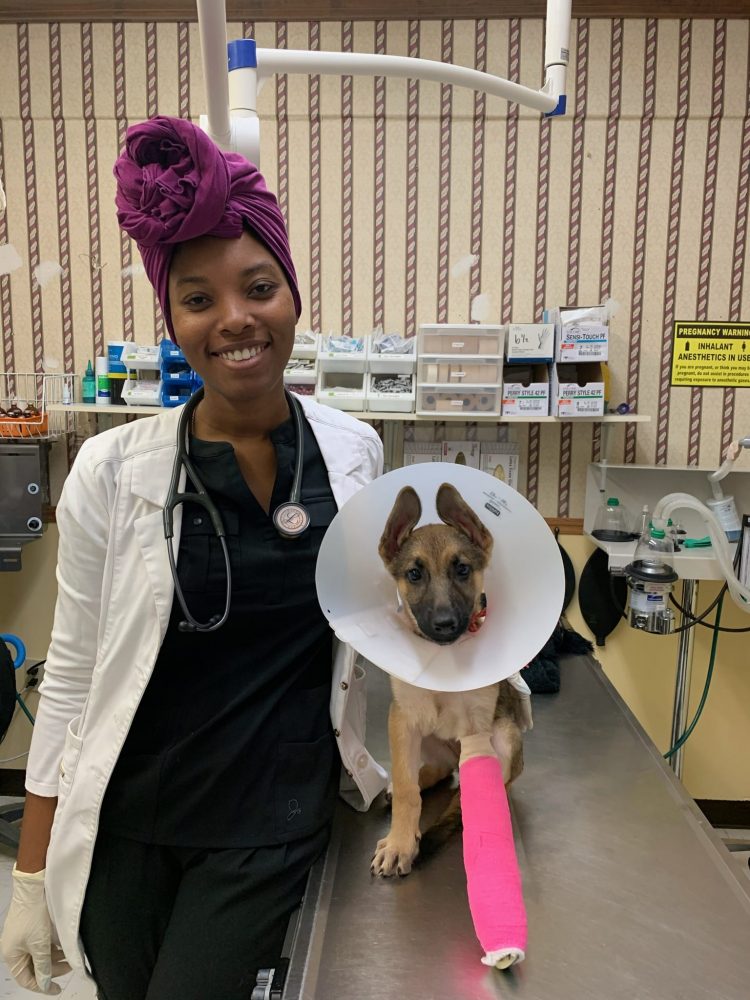Earning an advanced degree is no simple task. Dr. Aziza Glass offers guidance and support to new students through her non-profit initiative, DR2DR. We talked to her about the inspiration behind her empowering new program.
Did you always know you wanted to be a Veterinarian?
Absolutely not! I always had an affinity toward animals and was proactive in learning about them. As a child, I preferred to watch nature documentaries on PBS. That’s what I looked forward to every Sunday night. If I wasn’t watching animals on TV, I was reading about them. I didn’t have pets until my senior year in high school. Pets were not allowed in the house, but my mom compromised on a fish tank. I didn’t consider becoming a veterinarian until I was in college.
What was the hardest part of grad/vet school?
The constant workload. It’s like trying to take a drink from a fire hose. Being in a competitive graduate/professional program is rigorous. You have to learn how to manage yourself and the work or you will burn out. It’s a marathon, not a sprint.

What is the DR2DR Initiative?
The DR2DR Initiative was established to mentor, encourage, and build self-esteem and community among students, including those in the healthcare professions and related science, technology, engineering, and mathematics (STEM) fields.
What’s the mission of the organization?
The mission of DR2DR is as follows:
A: To inspire students and aspiring students of the healthcare professions and related STEM
fields to become professionals and entrepreneurs.
B: To promote economic, community, and career development for students and aspiring
students of the healthcare professions and related STEM fields.
C: To provide scholarships to individuals, including those at a socioeconomic disadvantage,
which can negatively influence their performance in rigorous educational programs.
What inspired you to start DR2DR?
As I talked to aspiring vet students, I noticed a common theme: Lack of accessibility. There were knowledge gaps in the process of applying to grad school and a misconception of what it takes to become a veterinarian. I wanted to create a space where current and aspiring students could connect with people who have already gone through the process, giving them access to valuable information that enables success.
The scholarship program was also a crucial component for me. When I was accepted to Cornell University, my older sister, who is a pediatrician, asked for my list of necessary school supplies. She then sent me everything on that list (save for a few items). As a first year, I never once worried about having what I needed for class or labs. I could just focus on studying. I learned that was not my sister’s story. She was the first in our family to attend medical school, and as such, her experience was more trial and error. She was self-conscious about not having all the tools she needed and felt like she was always one step behind everyone else, which ultimately impacted her studies. In just one act of giving, she broke the cycle with me. From one Doctor to a future Doctor. That’s why my scholarship consists of awarding students with the school supplies they’ll need to help them through the most rigorous journey of their academic career.
How can people help with DR2DR?
Get involved!
FOLLOW us on IG — @dr2dri
DONATE via our website www.dr2dri.org. We accept both lightly used school supplies (ie. textbooks and lab coats) as well as monetary donations. DR2DR is a domestic nonprofit corporation, 501(c)3 status is pending.

What advice would you give to an aspiring veterinarian?
If you can, expose yourself to different types of veterinary medicine and animal care. Whether it’s working on a farm, shadowing a vet, or conducting laboratory research, these opportunities will help you discover if this is the right field for you.
What’s something about the medical profession that they DON’T tell you when you are in school? What surprised you the most?
When you’re in school, you don’t get the full scope of how you have to be creative and flexible in developing a variety of treatments for clients. In school, you learn about what is ideal to establish standard of care. Depending on the clientele you are serving when you graduate, those treatments may be too costly. So you often have to create a different plan that has the best chance of treating the patient, while remaining budget friendly. It can really put a damper on your job as a vet when you constantly have to worry about cost, all while knowing that you’re restricted from doing more to help your patients.
How have you grown personally and professionally?
Last year I took a leap of faith and opened my own mobile practice, Personal Touch Veterinary Clinic (@personaltouchvet). It has forced me to step it up as both a professional and an entrepreneur. Although I’m starting small, I’m learning how to grow a business and maintain a healthy work life balance in the process. It’s not easy, but it has been very rewarding.

